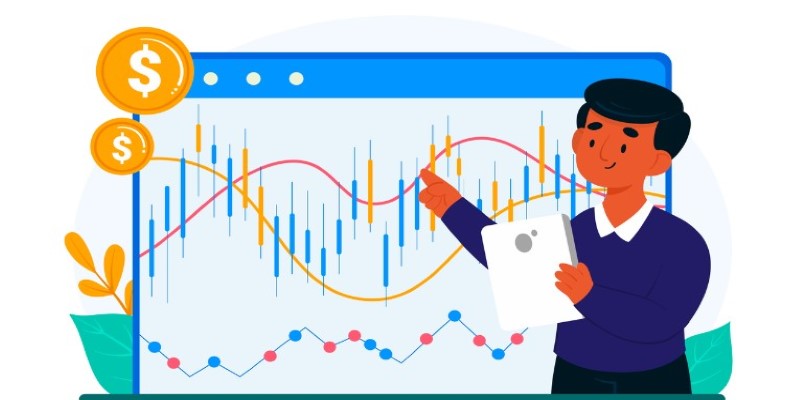Forex Trading Insights: Unraveling the Concepts of Equity and Balance
Oct 21, 2024 By Susan Kelly
Navigating the world of Forex trading can be daunting, especially when faced with terms like "equity" and "balance." Many traders, both new and experienced, often confuse these two concepts, yet they play a crucial role in assessing the health of a trading account.
Understanding the difference between them is not just a matter of semantics; it's essential for effective risk management and strategy formulation. Lets explore how equity and balance affect your trading journey and why mastering these terms is vital for success.
What Is Forex Balance?
In simple terms, the balance in Forex refers to the amount of money in your trading account. This balance reflects the funds youve deposited, including any profits or losses from trades you have already closed. However, the key thing to remember is that your balance does not account for open trades. Its essentially a snapshot of your account at a given moment in timeright after you close a trade but before you open a new one.
For example, say you start with $10,000. You make a profit of $1,000 after closing a few positions. Your balance now stands at $11,000. However, if you have an open trade, its current value doesnt appear in your balance. Only closed positions affect the balance.
Pros of Forex Balance
Forex balance provides a straightforward view of available funds, reflecting the total amount in the trading account after closed trades. This simplicity is beneficial for beginners, allowing them to easily assess their financial situation. Additionally, the balance helps traders determine how much cash can be withdrawn without impacting open positions, facilitating effective money management and withdrawals. By focusing on balance, traders can make informed risk management decisions.
Cons of Forex Balance
The main drawback of relying solely on balance is its failure to account for open positions, which can lead to an inaccurate assessment of financial health. This static metric may create a false sense of security, causing traders to overlook potential losses from active trades. Furthermore, without real-time insights from equity, traders might not respond appropriately to market fluctuations, increasing the risk of margin calls and forced liquidation.
What Is Equity in Forex?
Equity is a bit more dynamic and fluctuates in real time. It represents the total value of your account, including both your current balance and the unrealized profit or loss from open positions. In other words, it's your balance adjusted for the floating profits or losses of any trades you haven't yet closed.
Imagine you have that same $11,000 balance, but you also have an open trade thats showing a $500 profit. Your equity would be $11,500. Conversely, if the trade was showing a $500 loss, your equity would be $10,500.
Equity is important because it accurately reflects your account's financial health. It's the number that truly shows how much money you would have if all positions were to be closed at the current market price.
Pros of Equity in Forex

Equity in Forex provides a real-time view of a trading accounts health, reflecting both the account balance and the unrealized profits or losses from open trades. This dynamic measurement allows traders to make informed decisions about their positions, helping them determine when to take profits or limit losses. By effectively monitoring equity, traders can also better manage their risk and ensure they maintain sufficient funds to meet margin requirements, minimizing the risk of liquidation.
Cons of Equity in Forex
One downside of equity in Forex is that its fluctuations can induce emotional stress for traders. Rapid changes in equity due to market volatility may lead to anxiety and impulsive decision-making, which can negatively affect trading outcomes. Additionally, if equity falls below certain levels, brokers may issue margin calls, forcing traders to either deposit more funds or close positions. This pressure emphasizes the need for effective emotional control and robust risk management strategies.
Key Differences Between Equity and Balance
Understanding the distinction between equity and balance is essential in finance and accounting, as both terms play significant roles but refer to different concepts. Below are the key differences:
Inclusion of Open Positions:
The main difference is that balance doesnt factor in open trades, while equity does. This makes balance a static value that only changes when a trade is closed or when deposits or withdrawals are made. Equity, on the other hand, is dynamic, changing in real-time with market movements because it includes unrealized profits or losses from open positions.
Risk Management:

Equity plays a crucial role in managing risk. Since equity reflects your real-time financial standing, it helps traders assess how much capital they have available for margin and how close they are to a margin call (a brokers warning that you need to add more funds or close some trades to avoid forced liquidation). Many traders use their equity to determine how much risk they can afford to take on new trades.
Margin Requirements:
When you open a position, a portion of your balance is set aside as a "margin." Your broker uses equity, not balance, to determine whether you meet the margin requirements for your open positions. If your equity falls too low, you could face a margin call. If equity drops even further, you may reach what's called the "stop-out level," where your broker automatically closes trades to prevent your account from going negative.
Account Performance:
Balance is a more stable metric, providing a clear view of how much money is in your account based on closed trades. Equity, however, gives a more accurate measure of your accounts performance at any given time, since it reflects all ongoing trades as well as market fluctuations. For traders, focusing on equity rather than balance offers a clearer perspective on their potential risk and reward.
Conclusion
In Forex trading, both equity and balance are critical metrics, but they serve different functions. Balance offers a fixed snapshot of your account, only reflecting closed positions, while equity provides a real-time view of your financial standing, including open trades.
Understanding the difference between equity and balance is essential for effective risk management and long-term success in the Forex market. Monitor your equity to better manage risk, avoid margin calls, and safeguard your trading capital.
-
 Currency Oct 21, 2024
Currency Oct 21, 2024Forex Trading Insights: Unraveling the Concepts of Equity and Balance
Assessing equity alongside balance can enhance risk management, ensuring you make informed decisions based on your account's real-time financial status in Forex trading
-
 Investment Dec 26, 2023
Investment Dec 26, 2023Best Financial Portfolio Management Tools in 2021
Financial Portfolio Management Tools are widely used by investors to manage multiple accounts and keep track of portfolios in a single place. These advanced tools provide in-depth analysis, financial projections and examine investment returns and asset allocations. The top Financial Portfolio Management Tools of 2021 are Personal Capital, Stock Rover, Quicken Premier, and Morningstar Portfolio Manager. With these tools, you can get a quick snapshot of your financial portfolios on one platform.
-
 Investment Jan 26, 2024
Investment Jan 26, 2024Stock Brokerage Firms in the US
Charles Schwab is a top US stock brokerage firm with $4.04 trillion in assets for clients and 12.3 million active brokerage accounts.
-
 Banking Jan 22, 2024
Banking Jan 22, 2024Uncovering the Cerulean Credit Card: Top 10 Must-Know Features
Explore the comprehensive features and numerous benefits of the Cerulean Credit Card, a reliable option for effective financial management and credit build-up
